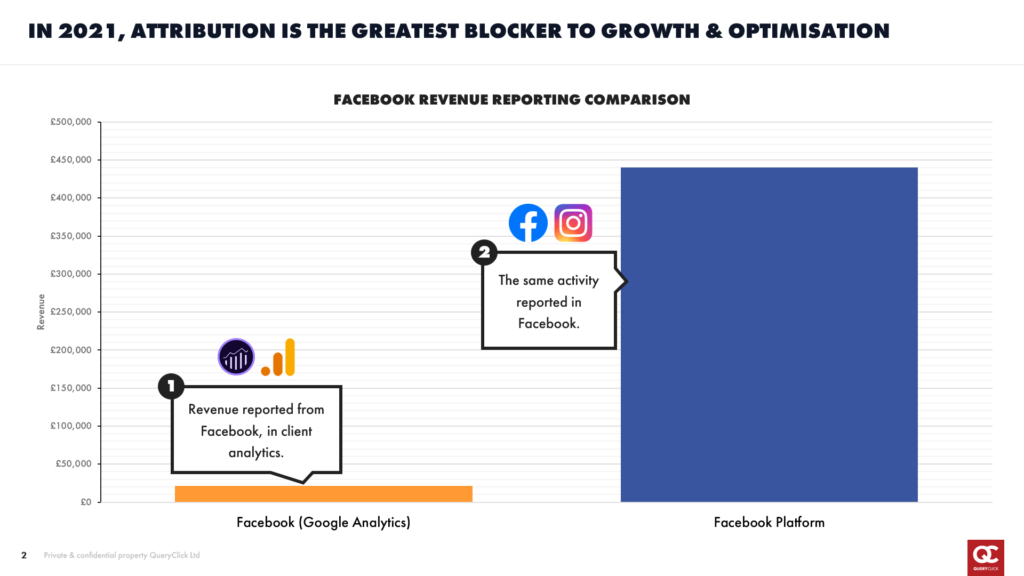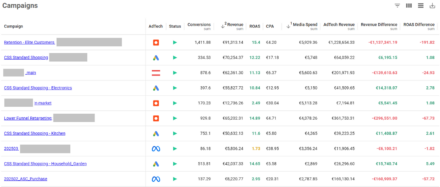How to Ensure You Have the Most Effective Marketing Mix

As marketers, we all know that the key to growth is being able to place the right product in the right place and at the right time. Sounds simple, right?
However, consumers are exposed to hundreds of brand interactions and marketing messages on a daily basis. The challenge for marketers in this new world, where customer journeys are longer and the range of channels being used to reach potential buyers has increased, is to unravel this complex puzzle and work out which of these interactions are really driving conversions.
Accurate marketing data is foundational in all of this. And an effective attribution solution is essential.
But, without an attribution solution that clearly shows you how each of the channels in your marketing mix – and the varying campaigns within those channels – is working to acquire customers, it’s likely you’ll be left spreading your budget across multiple channels and individual campaigns.
Let’s look at a practical example
To understand this a little better, let’s take a look at a very practical example which we explored in a recent webinar in association with Campaign.
In this case, leading online clothing retailer QUIZ were aiming to get to the bottom of the actual impact of their Facebook marketing spend on a specific campaign. The challenge – as shown below – was that Facebook’s own reporting was presenting a story which was different to the actual results.
And not just slightly different but different by a factor of over 20 times.

So just for the sake of clarity, in this specific case:
- Facebook was reporting attributing revenue against this specific campaign of just under £450,000
- Whilst the same campaign in Google Analytics was reporting only £20,000 of attributed revenue
That is a significant difference in any context. And Haroun Saleemi, Head of eCommerce at QUIZ, summed it up more succinctly than any one of us could during the webinar by saying:
“If you were to go by what Facebook tells you, then you wouldn’t stop spending. And if you were to go on last click, attribution (via Google Analytics) then you wouldn’t spend at all”.
Haroun Saleemi – Head of eCommerce, QUIZ
So how can that be, I hear you ask? There are a number of reasons for this – and you can find a deeper dive into them in our complete guide to marketing attribution – but at an outline level they include:
- Walled garden approaches – central to the issue is the type of Walled Garden approach that platform and media owners like Facebook, Google and Amazon are increasingly taking which means that they limit the availability of data for analysis outside of their own analytics tools
- Poor data quality – limitations in the way that data is collected also contributes to the quality of the underlying data which is being used for attribution purposes. For example, the limitations in the pixel-plus cookie approach that is used in Google Analytics means that data collected in this way can be up to 80% inaccurately attributed to the wrong channel
- Data silos – the practice of individual channels analysing their own data and effectively “marking their own homework” can lead inevitably to biased reporting, either consciously or unconsciously, and the lack of a single data view also means that there can be significant issues like double counting from an attribution perspective
- Flawed attribution models – for example, the default attribution model in Google Analytics is last-click which is over-simplistic and provides a skewed view of attribution which 100% favours the last customer interaction from an attribution perspective – ignoring the impact of all other touchpoints in the customer journey
Why unbundling data was key
So, it’s clear that the initial analysis given by both Facebook reporting and GA weren’t accurate. So, what was the true picture?
The truth was actually somewhere in the middle as shown in the graph below – with attributable revenue of just under £250,000 being attributed to the Facebook campaign.

In this case we used our own attribution platform to:
- Effectively analyze and query the underlying data using the latest techniques in Machine Learning and AI to effectively rebuild the data from the ground up. To ensure that there was an accurate base to perform attribution on
- Implement a visit-level attribution model that was able to assign an accurate value to each and every touchpoint right across individual customer journeys
- And then provide a much more accurate attribution of actual Facebook campaign contribution to revenue
And the results of this type of approach are significant.

In the example above, we were also able to use campaign level attribution – to rebuild Google Ads channel data to:
- identify loss making spend in the shape of campaigns that cost as much as the revenue they return
- uncover how re-allocating 22% of wasted spend could generate incremental revenue of £1.4m p.a.
It’s this type of attribution analysis that is key to unlocking the true value in your marketing campaigns – by eliminating spend on adverts that are not effective and using that budget in other channels to create a more effective marketing mix. And driving a straight line from spend through to revenue.
As well as cutting out the need for endless guessing on where to spend budget – which typically only results in wasted spend and cannibalisation.
Discover how to solve your challenges with effective attribution
We’ve created six Marketing Attribution Use Cases that explore why effective marketing attribution is key to solving a number of challenges faced by today’s marketers: from justifying marketing spend to getting more customers for less. To learn more, download the eBook below.
Marketing Attribution Use Cases
Own your marketing data & simplify your tech stack.
Have you read?
Chrome’s announcement on dropping cookie opt-in last month closed the door on a 5 year saga for marketers. But what is the landscape like in 2025 for cookie-based measurement?
Generative AI is transforming the way that marketers plan and assemble content for their Paid Ads. As big platforms like Google, Meta and TikTok increasingly build the tools needed to...
In a surprising move that has sparked heated debate, Mark Zuckerberg announced on his Instagram that Meta will be reducing its levels of censorship and in particular fact-checking on its...



